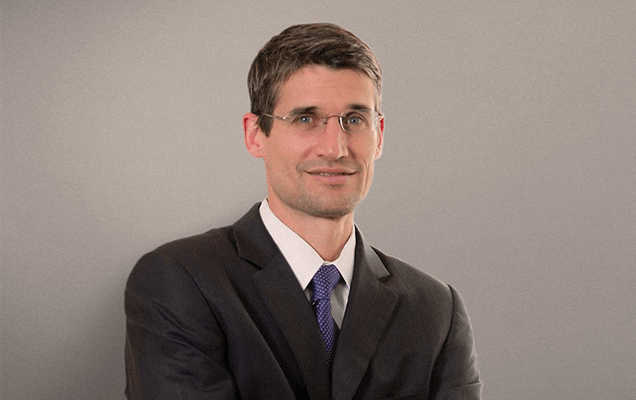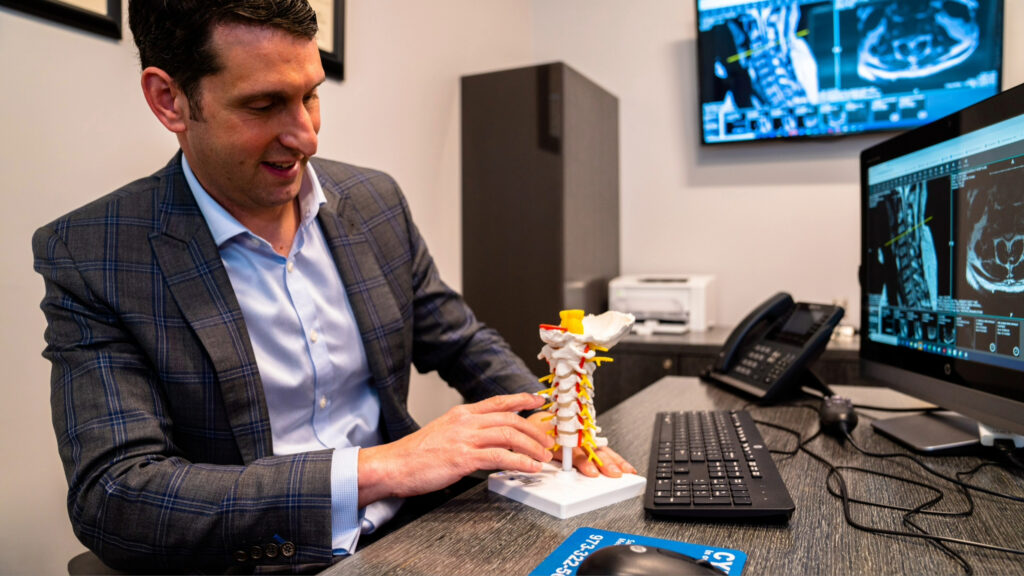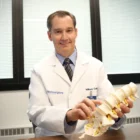Pain. Immobility. Waning confidence. Lost quality of life. If any of these symptoms sound familiar, you are probably facing the possibility of undergoing spinal fusion surgery. The word “surgery” alone can make anyone cringe — horror stories abound, including those about associated spinal fusion surgery risks. Reality does not agree, and the truth behind the majority of those stories is shaky at best. Armed with the right information, you will find that any risks are far outweighed by the benefits from a well-performed spinal fusion surgery.
What Conditions and Injuries Does Spinal Fusion Surgery Treat?
The beauty of spinal fusion surgery is in its diversity. It can be used to treat pain and discomfort caused by conditions and injuries such as degenerative disk disease, fracture, infection, scoliosis, spinal stenosis, spondylolisthesis and tumors. The means by which the spinal fusion can help each of these problems is varied and is a subject unto itself. However, most patients who receive spinal fusion surgery are able to resume their normal, active lifestyles.
What Are the Risks of Spinal Fusion Surgery?
Spinal fusion surgery, like any surgery, has risk factors that must be taken into consideration before undergoing the procedure. The spinal fusion surgery risks include but are not limited to:
- Graft site pain. Uncommon, but still a possibility, a small percentage of patients notice persistent discomfort or pain at the site of the bone graft.
- Surgical site infection. Although a risk with any surgery, infection are also uncommon. Antibiotics are administered at regular intervals before and during the surgery to help eliminate the possibility of an infection developing in or near the surgical site.
- Development of pseudoarthrosis. Another reason to give up smoking? People who smoke have a much higher chance of developing a condition called pseudoarthrosis. When this condition occurs, bone formation is not adequate in the surgical area and additional surgeries may be required to achieve a solid bone fusion.
- Excessive bleeding. Minor bleeding occurs with almost all surgeries. The possibility of excessive bleeding does exist, but is only usually a factor in multilevel fusion surgeries.
- Nerve damage. Many people worry about nerve damage. While this risk is always a consideration, nerve damage occurring during a spinal fusion surgery is rare and permanent nerve damage is extremely unlikely.
- Formation of blood clots. Another risk many people worry about is the formation of post-surgical blood clots in the legs. Clot formation is possible with any surgery, and precautions are always taken to prevent this occurrence. If you are aware of a clotting condition in yourself or in family members, be sure to mention it to your surgeon before the surgery date.
- Spinal Fluid Leak: Your nerves are packaged with a clear fluid inside a sac of delicate tissue called the dura, that can be torn inadvertently during spinal surgery. Although this can be repaired at surgery, there is a risk that the initial repair will not work and subsequent surgeries will be needed.
It's time to get back
to doing what you love.
What Are the Benefits of Spinal Fusion Surgery?
The above list of possible risks may seem a little daunting, but it must be kept in perspective. Most people who have spinal fusion surgery do not have one of these complication. The percentage that gain relief from debilitating spine issues, however, far outnumber those that have complications. What are the benefits of undergoing spinal fusion surgery?
- Reduced occurrence of debilitating pain. Vertebral problems can cause excruciating pain. Regardless of the underlying diagnosis, there is a good chance you will gain relief from associated pain if your specialist has appropriately recommended spinal fusion surgery.
- Stability for decompression surgery. In some instances, the removal of bone tissue in spinal decompression surgery can provide much-needed relief from nerve compression but can also leave the area unstable. Spinal fusion surgery performed at the same time can help create a much stronger structure so that repeated surgery to correct instability may not be necessary.
- Increased mobility. Many individuals who have one- or two-level fusion surgeries (especially for spinal stenosis patients) notice an increase in their range of movement. This mobility is due to reduced pain in the affected areas through the spinal fusion.
- Less or ceased use of pain medications. Back pain sufferers often need pain medications — at least intermittently — be they over-the-counter analgesics or more powerful narcotics prescribed by their physicians. By helping to eliminate the pain source, spinal fusion surgery may help you take less, or even cease usage, of these medications altogether. Additionally, the use of other prescribed medications, such as those for managing nerve pain, might be cut back or eliminated.
There is no guarantee against spinal fusion surgery risks, but the benefits far outweigh the possibility of complications for your future quality of life.
Final Thoughts
Remember to have a candid discussion with your surgeon and back pain specialist to help determine if you might have a higher chance of experiencing any of the associated risks. In most cases, measures can be taken to decrease the possibility, such as administering medication to help prevent the formation of clots in those patients prone to this problem. You owe it to yourself to seek a life without constant pain and discomfort.

About Dr. Alfred T. Ogden
Dr. Alfred T. Ogden is an accomplished neurosurgeon in North Jersey and is a proud member of Neurosurgeons of New Jersey, practicing out of their Ridgewood office conveniently located on East Ridgewood Avenue. Dr. Ogden is internationally recognized as a leader in minimally invasive spine surgery.









